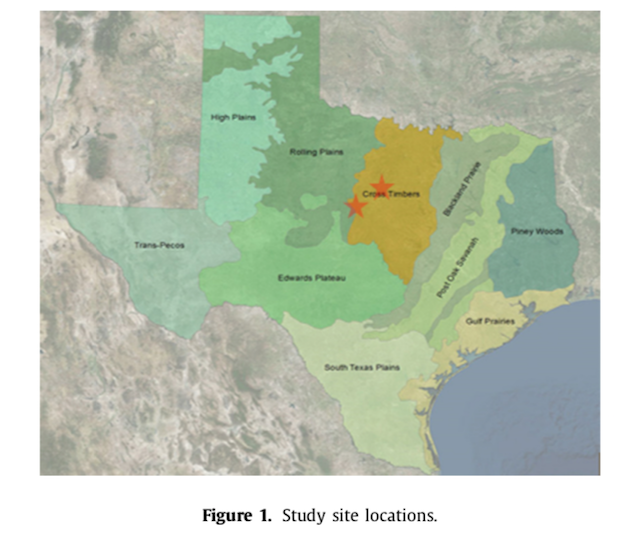 In the ecoregions of the Rollings Plains and Cross Timbers of Texas, there are many native grassland communities that have been converted to low-diversity plant communities by long-term overgrazing of cattle and fire suppression.
In the ecoregions of the Rollings Plains and Cross Timbers of Texas, there are many native grassland communities that have been converted to low-diversity plant communities by long-term overgrazing of cattle and fire suppression.
The historical plant community has become dominated by monocultures consisting of Texas wintergrass and honey mesquite. The degradation of the native plant communities has been severe enough that many native birds have experienced a decline in population, specifically the Northern bobwhite.
AgriLife Researchers conducted a small-plot study to determine the effective management actions needed for transforming mesquite savanna – Texas wintergrass communities to diverse native plant communities that would support more native wildlife species.
Multiple management practices were tested including; mechanical mesquite brush removal, timed treatments of herbicide, prescribed burns, and high-intensity, short-duration cattle grazing.
Research results showed that plots receiving early spring treatments of herbicide followed by burning and grazing over 2 consecutive years best reduced cool-season grasses and promoted overall restoration goals by increasing native warm-season grasses.
For more information, be sure to read the full study here!
Murray, D. B., Muir, J. P., Miller, M. S., Erxleben, D. R., & Mote, K. (2021). Effective management practices for increasing native plant diversity on Mesquite Savanna-Texas Wintergrass-Dominated Rangelands. Rangeland Ecology & Management, 75, 161–169. https://doi.org/10.1016/j.rama.2021.01.001